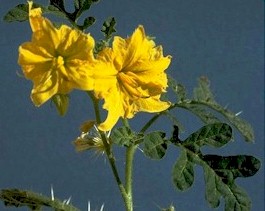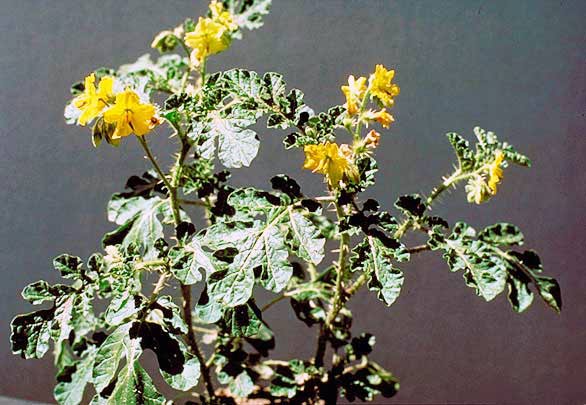Buffalobur identification and control
Solanum rostratum

Legal status in King County, Washington
Buffalobur is a Class C noxious weed in Washington, selected by the King County Noxious Weed Control
Board for required control. In King County, property owners are required to control it when it occurs on their property. It is also on the Washington quarantine list (also known as the prohibited plants list) and it is illegal to buy, sell or offer it for sale in the state of Washington. It has a very limited distribution in Washington. For more information on noxious weed regulations and definitions, see Noxious weed lists and laws.
Additional information on buffalobur
- King County Buffalobur Weed Alert (601 Kb)
- Washington State Noxious Weed Control Board (external link)
What to do if you find this plant in King County, Washington
Please notify us if you see buffalobur growing in King County. Our program staff can provide the property owner or appropriate public agency with site-specific advice on how best to remove it. Also, because buffalobur is not established in King County, we have an opportunity to stop it from spreading if we act quickly. We map all known locations of regulated noxious weeds such as buffalobur in order to help us and others locate new infestations in time to control them.
Buffalobur photos

Report buffalobur in King County, Washington
- Please notify us through our online infestation form
Locate buffalobur in King County, Washington
- Use our interactive noxious weed map and search
for buffalobur
Related information
Related agencies
Program offices are located at 201 S. Jackson St., Suite 600, Seattle, WA 98104. To contact staff, see the Noxious Weed Control Program Directory, send an email, or call 206-477-WEED (206-477-9333).

 Translate
Translate